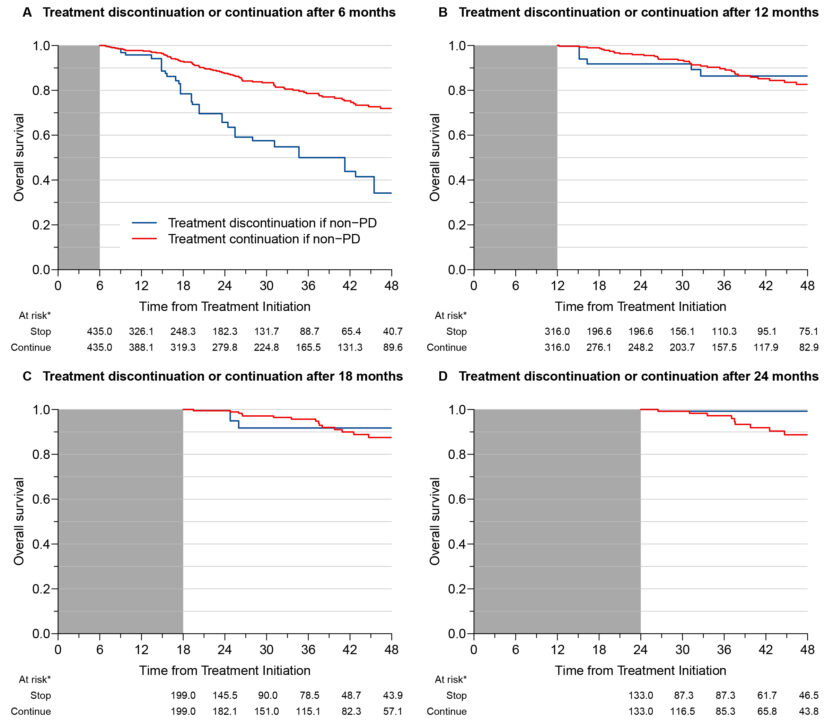Target trial emulation to identify the optimal duration of immune checkpoint inhibitors treatment of advanced melanoma
Background: Immune checkpoint inhibitors (ICIs) have demonstrated their efficacy with a 7.5-year overall survival (OS) close to 50% for advanced stages. The design of clinical trials provides for treatment until progression or toxicity, or for a maximum duration of two years. Prolonged follow-up of responders after treatment cessation shows sustained response and a low risk of relapse in the months following cessation. To date, the optimal duration of anti-PD-1 therapy for metastatic melanoma remains unestablished. The objective of this work was to evaluate the optimal duration of ICI administration.
Methods: We emulated target trials using the cloning, weighting and censoring approach. Each emulation trial aimed to compare the effect of discontinuing versus continuing ICIs at a specific timepoint, among patients still under treatment and with disease control at that time. Patients were from MelBase between 2015 and 2021.
Findings: 435 participants in the MelBase cohort were eligible and were included in the 6-month discontinuation emulated trial. The results showed significantly lower OS when treatment was discontinued, than when treatment was prolonged for at least three months. The 48-month survival difference was 37.8% (95% confidence interval [CI] 19.8-60.5), and the corresponding restricted mean survival time difference was 8.3 months (95% CI: 4.1-12.7). Neither the 12-month nor the 18-month discontinuation emulated trials showed evidence of benefit of either discontinuing or continuing ICIs at either of these timepoints. The 24-month discontinuation emulated trial results were more in favor of discontinuing than continuing treatment at that time point, with an absolute 48-month survival rate that was 10.5% higher (95% CI 4.4-18.1).
Interpretation: These results suggest that a one-year course of immunotherapy is both necessary and sufficient for patients with advanced melanoma. Prolonged treatment beyond 2 years does not appear to be beneficial in terms of survival and could even be detrimental.
By Raphaël Porcher
